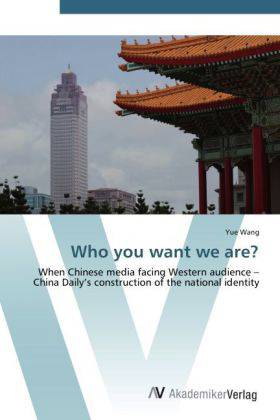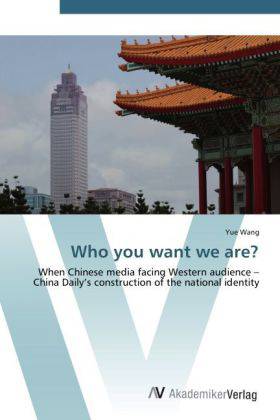
Bedankt voor het vertrouwen het afgelopen jaar! Om jou te bedanken bieden we GRATIS verzending (in België) aan op alles gedurende de hele maand januari.
- Afhalen na 1 uur in een winkel met voorraad
- In januari gratis thuislevering in België
- Ruim aanbod met 7 miljoen producten
Bedankt voor het vertrouwen het afgelopen jaar! Om jou te bedanken bieden we GRATIS verzending (in België) aan op alles gedurende de hele maand januari.
- Afhalen na 1 uur in een winkel met voorraad
- In januari gratis thuislevering in België
- Ruim aanbod met 7 miljoen producten
Zoeken
Who you want we are?
When Chinese media facing Western audience China Daily s construction of the national identity
Yue Wang
Paperback | Engels
€ 74,45
+ 148 punten
Omschrijving
Revision with unchanged content. The process of national identity construction involves the perception of and relation with a country s significant others. For the English-language media in China, it s never an easy task. PRC s international legitimacy has always been a problem. Ideologically contra-dictory, many Westerners hold a negative attitude towards the Communist China with a feeling of "fear and loathing". Chinese traditional culture, on the contrary, is a convenient and safe solution to answer the question of "who we are". Would China Daily, the national English-language newspaper, tend to construct an alternative national identity more from the perspectives of a cultural nation than a political state? If so, how would the paper, as a party propaganda organ, reconcile the crisis of dual legitimation caused by the contradictory attitude of the Party toward Chinese cultural tradition? And how could the paper fulfill its political function of promoting the party-state's international legitimacy while at the same time avoid keeping its audience away? What strategies has the paper used and how do they work in constructing the national identity? This book is addressed to those who share the writer s interest in disentangling the tangled relation between Chinese politics and culture in the construction of national identity.
Specificaties
Betrokkenen
- Auteur(s):
- Uitgeverij:
Inhoud
- Aantal bladzijden:
- 200
- Taal:
- Engels
Eigenschappen
- Productcode (EAN):
- 9783639453959
- Verschijningsdatum:
- 21/08/2012
- Uitvoering:
- Paperback
- Afmetingen:
- 152 mm x 229 mm
- Gewicht:
- 299 g

Alleen bij Standaard Boekhandel
+ 148 punten op je klantenkaart van Standaard Boekhandel
Beoordelingen
We publiceren alleen reviews die voldoen aan de voorwaarden voor reviews. Bekijk onze voorwaarden voor reviews.









